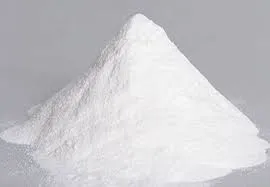
ოქტ . 22, 2024 13:25 Back to list
HPMC Usage in Mortar Formulations and Its Impact on Performance Properties
Understanding HPMC for Mortar Applications
Hydroxypropyl Methylcellulose (HPMC) has emerged as a crucial additive in the construction industry, particularly in the formulation of mortar for both cement and gypsum-based products. This versatile cellulose ether is known for its unique properties, which enhance the performance of mortars in various construction applications. In this article, we will explore the functions of HPMC in mortar, its benefits, and considerations for its effective use.
What is HPMC?
HPMC is a semi-synthetic polymer derived from cellulose, a natural polymer found in plants. The structure of HPMC is modified through hydroxypropyl and methoxy groups being introduced to the cellulose molecule. This modification imparts water solubility and various functional characteristics to the compound. In the context of mortars, HPMC serves as a thickening agent, water-retaining agent, and binder, thus improving workability and performance.
Benefits of HPMC in Mortar
1. Enhanced Workability One of the primary advantages of adding HPMC to mortar is its ability to improve workability. Mortar containing HPMC typically exhibits better flow properties, making it easier to apply and manipulate during construction. This improved workability is especially beneficial in intricate applications, such as tile installation and plastering.
2. Water Retention HPMC possesses excellent water retention capabilities. This characteristic ensures that the mortar remains workable for an extended period, allowing for more flexibility in application. Adequate water retention also helps to prevent premature drying, which can lead to cracking and other structural issues in the cured mortar.
3. Mechanical Strength The incorporation of HPMC into mortar formulations can enhance the final mechanical properties of the dried mortar. It contributes to improved adhesion and tensile strength, which are critical in ensuring the durability and longevity of the construction work.
4. Freeze-Thaw Resistance In regions subject to extreme weather conditions, the thermal stability offered by HPMC is invaluable. Mortars with HPMC are less susceptible to damage from freeze-thaw cycles, making them ideal for outdoor applications where exposure to varying temperatures is commonplace.
hpmc for mortar

5. Versatile Applications HPMC is not limited to a single type of mortar; it can be used in various applications such as masonry mortars, tile adhesives, and plaster systems. This versatility allows builders and contractors to streamline their material choices while ensuring high-performance outcomes across different construction scenarios.
Considerations for Use
When incorporating HPMC into mortar formulations, several considerations should be taken into account
- Concentration Levels The performance of HPMC is largely dependent on its concentration in the mortar mix. Generally, a dosage ranging from 0.2% to 2% of the total dry mix is advisable. However, it is essential to adjust based on specific project requirements and material compatibility.
- Compatibility Not all types of HPMC are compatible with every mortar formulation. Factors such as pH levels and the presence of other additives must be considered. It is prudent to conduct compatibility tests before large-scale applications.
- Environmental Conditions The environmental conditions during application and curing can influence the performance of mortars containing HPMC. High humidity or extreme temperatures can affect drying times and mortar application, requiring adjustments to the formulation.
- Health and Safety While HPMC is generally considered safe, handling precautions should be observed to avoid inhalation of dust during the mixing process. It is advisable to work in well-ventilated areas and use personal protective equipment as needed.
Conclusion
Incorporating HPMC into mortar formulations provides a range of benefits that enhance building performance, workability, and durability. Its unique properties make it an essential additive in the construction sector, contributing to the creation of high-quality mortars suitable for diverse applications. As the construction industry continues to evolve, the importance of advanced materials like HPMC will likely grow, paving the way for more resilient and efficient building practices. Whether you are a contractor, builder, or material scientist, understanding the role of HPMC in mortar can lead to better project outcomes and longevity of structures.
-
Versatile Hpmc Uses in Different Industries
NewsJun.19,2025
-
Redispersible Powder's Role in Enhancing Durability of Construction Products
NewsJun.19,2025
-
Hydroxyethyl Cellulose Applications Driving Green Industrial Processes
NewsJun.19,2025
-
Exploring Different Redispersible Polymer Powder
NewsJun.19,2025
-
Choosing the Right Mortar Bonding Agent
NewsJun.19,2025
-
Applications and Significance of China Hpmc in Modern Industries
NewsJun.19,2025







